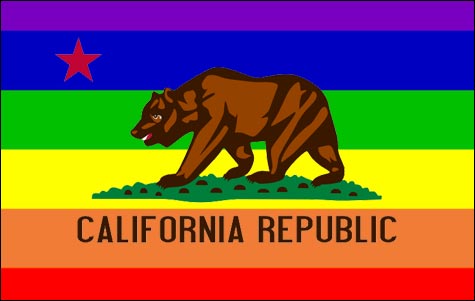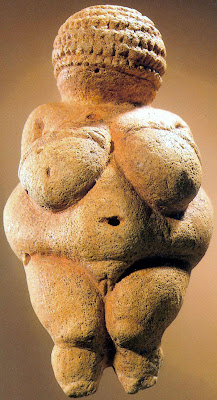
Women Among Us: Dorothy Allison
I cannot pretend to any objectivity about Dorothy Allison. In 1993 I was given a gift certificate to Book People here in Austin and went shopping in that store for the first time -- I usually did all my book buying at BookWoman, our feminist bookstore. I purchased Bastard Out of Carolina by Dorothy Allison and two books by Sarah Schulman, After Delores and Empathy. I read them all, one after another, and, as they say, my world split open.
I first began writing at age nine, urged into collaborating on a short story with a girl whom I loved passionately, desperately. After we moved away from the town where she lived, I continued writing short stories but also, at the end of that summer, wrote my first poem. It is linked temporally with the point at which I discovered there was a word for who I was: Lesbian. I shared that first poem with my mother, who was overwhelmed by our family circumstances and offered only a hurried criticism. After that, I did not tell anyone about my poems for another four years. I didn't share my sexual preference for another year beyond that.
But both identities are core to me, inextricable from Who I Am. During the 1970s and 1980s, I thought of myself as a writer as much as I called myself a dyke, though there were times when I didn't write much, if at all. Occasionally I was published. Mostly I was focused on activism, on trying to save the world.
I felt powerful barriers to being/becoming a writer. I could not imagine ever being paid for what I wanted to write, because my voice and my story were not valued by the world at large. It wasn't just the lesbian aspect, although that was certainly a clear gulf at that point in our culture -- the only people who cared about the lives of dykes were other dykes. Beyond that, however, I had been raised poor and had rejected upward mobility. My repudiation of shame made me suspect, even (and sometimes especially) among the working class. In addition, I had terrible secrets about sex and violence. I had broken silence on these secrets, but how could that become literature?
My friend Holly and I sometimes talked about what she called "survivor art", which she defined as artistic expression that went beyond simply naming what had been done to us as children, beyond confession. She envisioned it as reclaiming a whole girlhood, envisioning and creating (through writing, in my case) a reality where scars no longer acted as boundaries. It was an idea I found compelling.
And when I read Bastard Out of Carolina, I discovered Dorothy Allison had made the idea manifest. She told an entire story, all the pieces that my own contained, in a way which every reader understood. It was a finalist for the National Book Award, ferchristsake. This alone was concrete proof that my reality was no longer relegated to the shadows.
Likewise, Sarah Schulman wrote about a lesbian existence I comprehended intimately, but she did not offer a great deal of explanation: no back and fill to make it "easy" for a non-native reader. Again, her books were selling like hotcakes. If I didn't have to apologize, or translate, or temper my own words, then I too could write whatever I wanted. These women had just handed me an E-ticket to one of my core identities.
I had read occasional essays or poems by Dorothy Allison in women's publications. Now I went on a feeding frenzy, consuming The Women Who Hate Me and Trash in a gulp. Every time a new book appeared by her -- Skin, Two or Three Things I Know For Sure, Cavedweller -- I was first in line to buy and read them. In particular, her essay A Question of Class gave me much of the bedrock I now occupy in understanding and talking about classism.
She broke the trail I now follow. Still, I didn't take the step to becoming a Writer. Not yet.
Then in July 1999, after my left knee had decided to retire from my body but before I replaced it with titanium and plastic, I read that Dorothy Allison was teaching a workshop on writing memoir at a literary arts nonprofit called Gemini Ink in San Antonio. I enlisted the help of friends to get there and enrolled. I was terrified that morning of the workshop, and almost backed out. Once I was there, however, Dorothy looked across the room at me and grinned. By the end of the day, she gave me her phone number, the phone number of her agent, and said when I was ready, to call her.
I learned worlds that day about exactly what I needed to do. She was candid and generous. I can still hear her voice in my head saying certain things. Like "You get to tell your story, exactly how you want to tell it. Nobody else can tell your story, don't edit it for anybody." That writing is catharsis, if done right, but that's not why you should write. That she doesn't "do" therapy -- that's what friends are for. That to gear up for a hard patch of writing, she'll down a 2 liter bottle of Coke (me, too, my drug of choice). That nobody except Stephen King and Danielle Steel are earning a living strictly from what they write, every other writer either has a teaching gig, sells screenplays and movie rights, or has somebody to support them while they pursue their art.
When my friend and I got to her car afterward, my friend pounded on the dash and yelled "You got her phone number! She's going to make sure you get published, you wait and see." But I knew I was only just beginning.
Since then, I've had to contend with increasing disability, a lost year due to the cognitive injury during my surgery, growing poverty and isolation, and much, much death and loss. However, I've never stopped heading toward the next step in becoming a writer. Others stepped in to mentor me (Sharon Bridgforth, Terry Galloway), and I finally got the writing group of my dreams. I crossed the border and became the writer I was meant to be. Now I'm almost done with my novel, and eventually, when I have product in hand, I'll be calling Dorothy. I owe so much to her.
So do we all, in various ways.
She was born to an unmarried, dirt-poor 15-year-old girl in South Carolina, raised in poverty and abuse but also with love and rich Southern family culture. Lesbian-feminism saved her, as it saved me (although she was East Coast during those critical years and I was West Coast, which makes a difference). She's been partnered with Alix Layton for a couple of decades, and they have a teenaged son, Wolf Michael. She travels around lecturing when she isn't writing. She gives her energy away as much as she can -- more than she should, probably. She wears her hair long, is blind in one eye, and lives now in Northern California, the promised land for her. She looks damned good on a motorbike. Her recipe for red velvet cake is the best ever.
Read her as if she holds the key to emancipation, because in fact I think she does.
QUOTES BY DOROTHY ALLISON:
"I grew up poor, hated, the victim of physical, emotional, and sexual violence, and I know that suffering does not ennoble. It destroys." -- from A Question of Class
"I do not write about nice people. I am not nice people." -- from Skin: Talking About Sex, Class And Literature
“Change, when it comes, cracks everything open.” -- O Magazine, January 2004
"There was a myth of the poor in this country, but it did not include us. no matter how hard I tried to squeeze us in. There was an idea of the good poor—hard-working, ragged but clean, and intrinsically honorable. I understood that we were the bad poor: men who drank and couldn't keep a job; women, invariably pregnant before marriage, who quickly became worn, fat, and old from working too many hours and bearing too many children; and children with runny noses, watery eyes, and the wrong attitudes." -- from A Question of Class
Re the early feminist movement: "It was like opening your eyes under water. It hurt, but suddenly everything that had been dark and mysterious became visible and open to change."
“Two or three things I know for sure, and one of them is that if we are not beautiful to each other, we cannot know beauty in any form.”
“Independent presses and bookstores give access to literature specific to a place. Readers can find stories they need.”
“I wear my skin only as thin as I have to, armor myself only as much as seems absolutely necessary. I try to live naked in the world, unashamed even under attack, unafraid even though I know how much there is to fear.” – from Skin: Talking About Sex, Class & Literature
"Entitlement … is a matter of feeling like we rather than they … Why are you so afraid? my lovers and friends have asked me the many times I have suddenly seemed a stranger, someone who would not speak to them, would not do the things they believed I should do, simple things like applying for a job, or a grant, or some award they were sure I could acquire easily. Entitlement, I have told them, is a matter of feeling like we rather than they." -- from A Question of Class
“It’s an illusion that writers have a lot of choice about what they write. Your stories are your stories. They’re the only ones you can really tell, and if you try telling ones the world would like you tell, you’ll do it badly.” – Curve Magazine 2001
“Feminism gave me a vision of the world totally different from everything I had ever assumed or hoped. The concept of a feminist literature offered the possibility of pride in my sexuality.”
“I’m completely aware that people would like me to write a love story. It’s just that when I write a love story you probably are not goin’ to be able to tell. I don’t believe in romance in that sense. I actually believe romance is almost as much work as raising children.” – Curve Magazine 2001
"The horror of class stratification, racism, and prejudice is that some people begin to believe that the security of their families and communities depends on the oppression of others, that for some to have good lives there must be others whose lives are truncated and brutal. It is a belief that dominates this culture." -- from A Question of Class
“I don’t want to simplify when I write. I want people there with their warts on. I want you to love them even when you hate them.” - from "Dorothy Allison: Telling Tales, Telling Truths", essay by Kate Brandt in Happy Endings: Lesbian writers talk about their lives and their work
“I write who I can write—people I can understand. I can understand deeply wounded, hidden kinds of girls.” – Curve Magazine 2001
“There are only supposed to be certain people who are worth the trouble and you basically have to be middle class or exceptional in some way, really beautiful or really smart or be kissed by Jesus for god’s sake—the rest of us, we’re background noise and our stories aren’t important. And I just don’t believe that. I think the working class is the story of this country. The rich and the upper class have been riding on our asses for hundreds of years, and I don’t want to see us made over into a story that glorifies them. Our stories are glory enough.” – Curve Magazine 2001
“We are the ones they make fiction of – we gay and disenfranchised and female – and we have the right to demand our full, nasty, complicated lives.”
BOOKS BY DOROTHY ALLISON:
The Women Who Hate Me (poetry), 1983 by Firebrand Books, ISBN-10 : 0932379982
Trash (short stories), 1988 Plume Books, ISBN-10 : 0452283515 -- Winner of Lambda literary awards as best lesbian small press book and best lesbian fiction
Bastard Out of Carolina(novel), 1992 by Plume Books, ISBN-10 : 0452269571 – National Book Award finalist, Ferro Grumley & Bay Area Book Reviewers Awards, translated into more than a dozen languages and published in more than a dozen countries; in 1995, it was made into a movie directed by Angelica Huston and premiered on Showtime
Skin: Talking about Sex, Class, and Literature (essay collection), 1994 by Firebrand Books, ISBN 1-56341-044-3 – Gay & Lesbian Book Award, American Library Association
Two or Three Things I Know for Sure (memoir), 1996 by Plume Books, ISBN-10 : 0452273404 – named notable book of the year by New York Times Book Review
Cavedweller (novel), 1998 by Plume Books, ISBN-10 : 0452279 – Lambda literary award for fiction
She Who (forthcoming from Penguin Putnam)
LINKS:
Dorothy Allison's website
A Question of Class (essay at History Is A Weapon)
FemBio biography of Dorothy Allison
Interview with Dorothy Allison as Zale Writer in Residence at Tulane
Interview with Dorothy Allison at Salon
Interview with Dorothy Allison at Identity Theory
 (Maggie at Dorothy's writing workshop in July 1999, Gemini Ink, San Antonio, Texas; Maggie is upper right, Dorothy is to my right)
(Maggie at Dorothy's writing workshop in July 1999, Gemini Ink, San Antonio, Texas; Maggie is upper right, Dorothy is to my right)
There's more...
 ("I Remember Mama" by Xavier Viramontes)
("I Remember Mama" by Xavier Viramontes)























